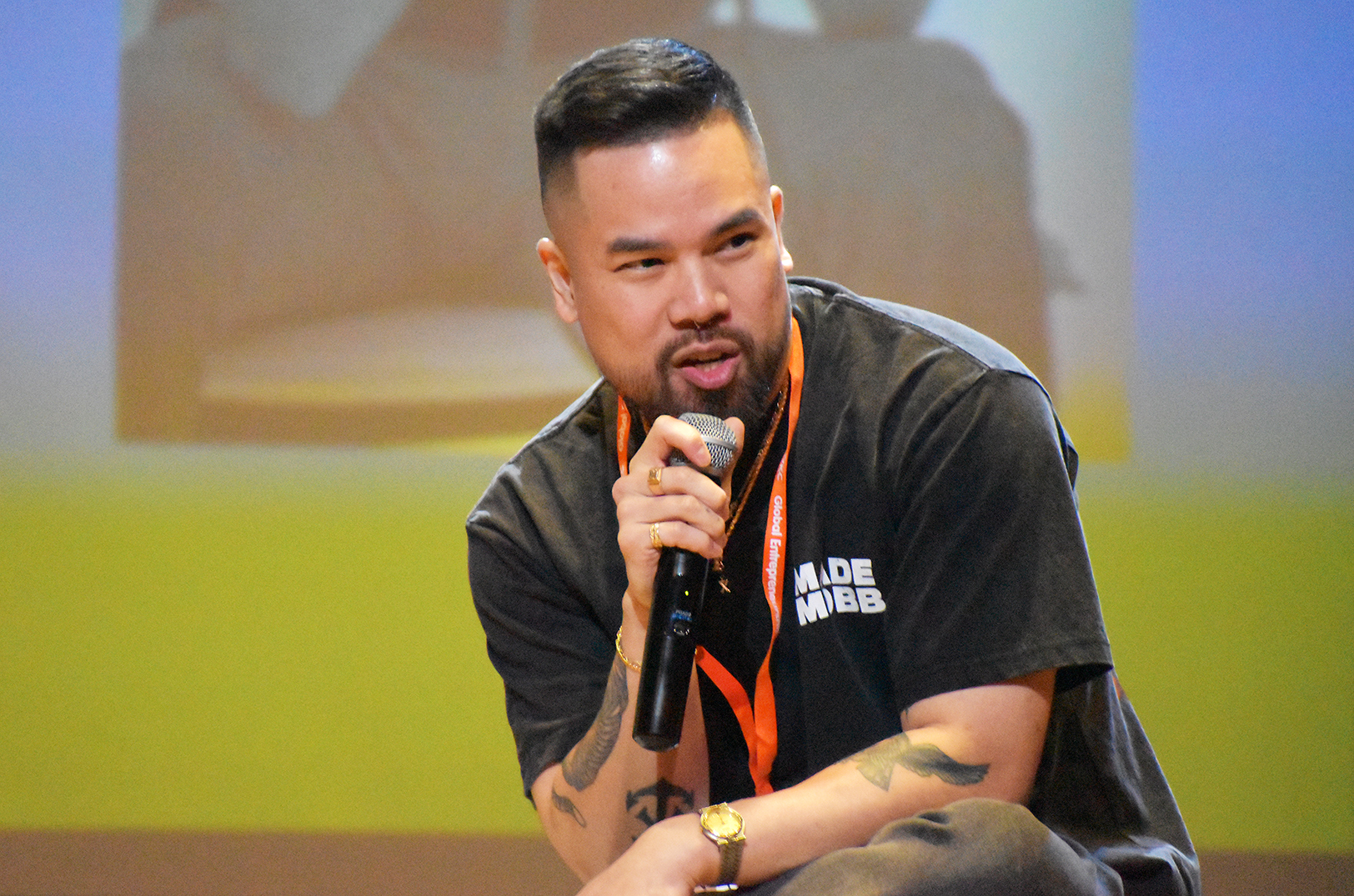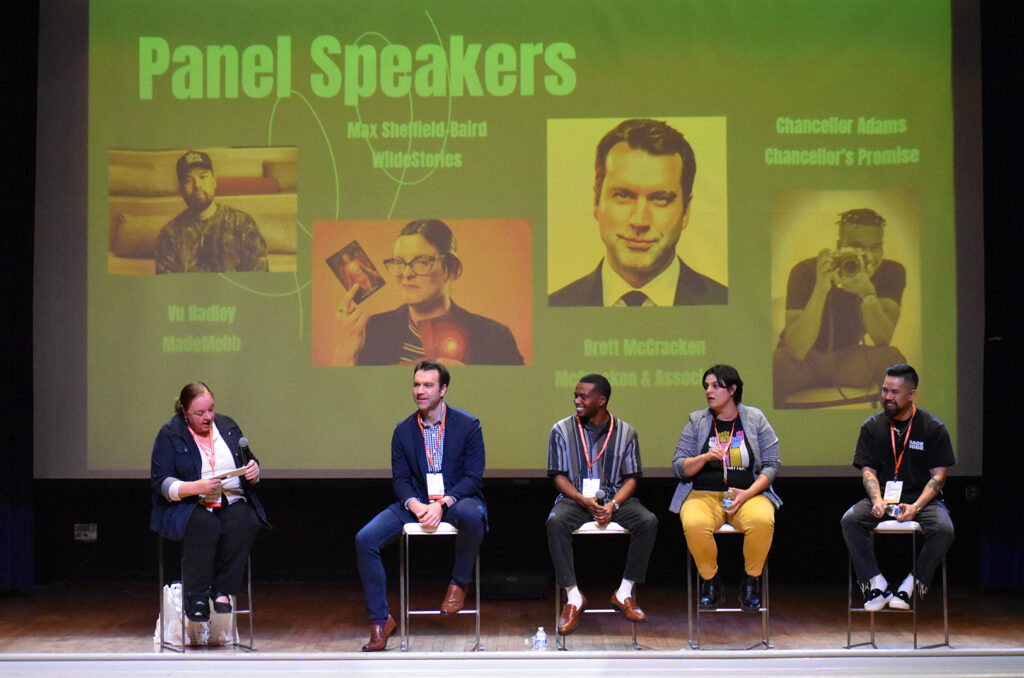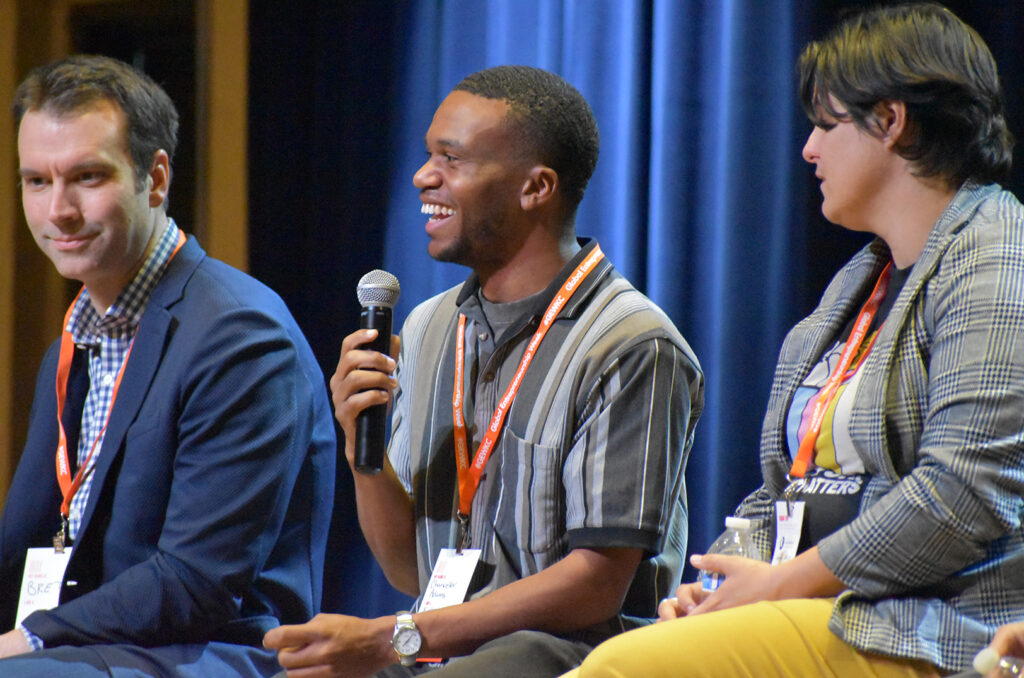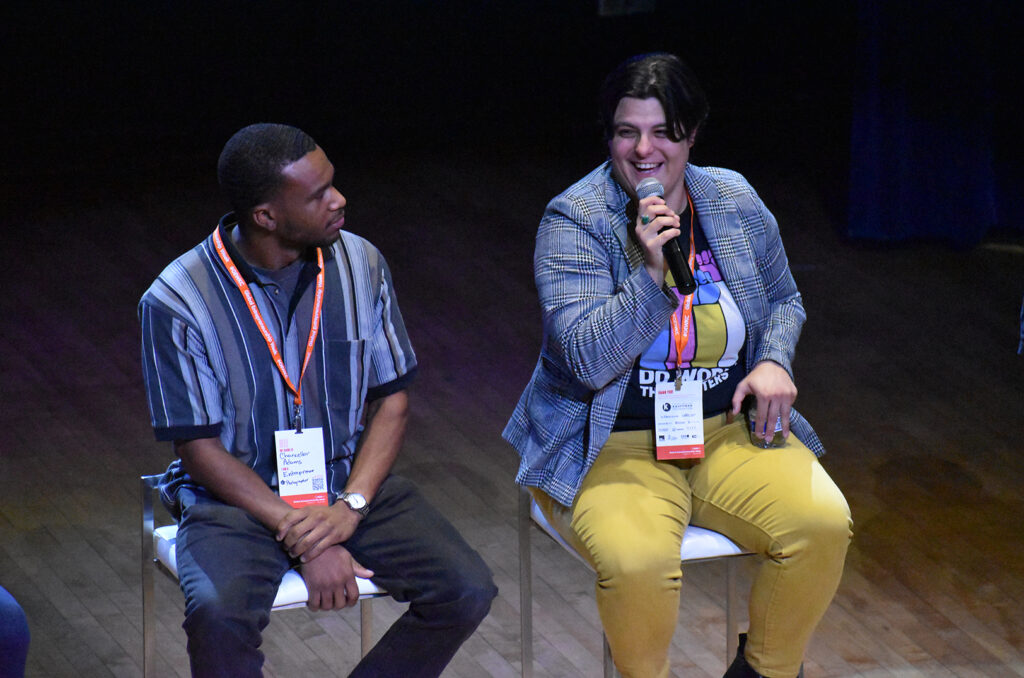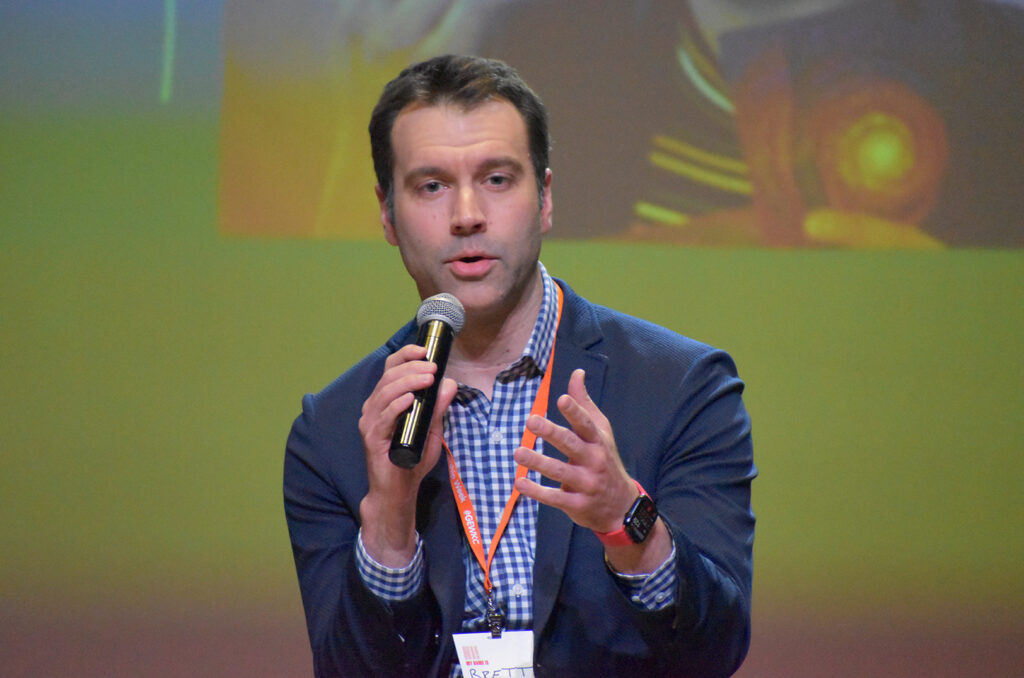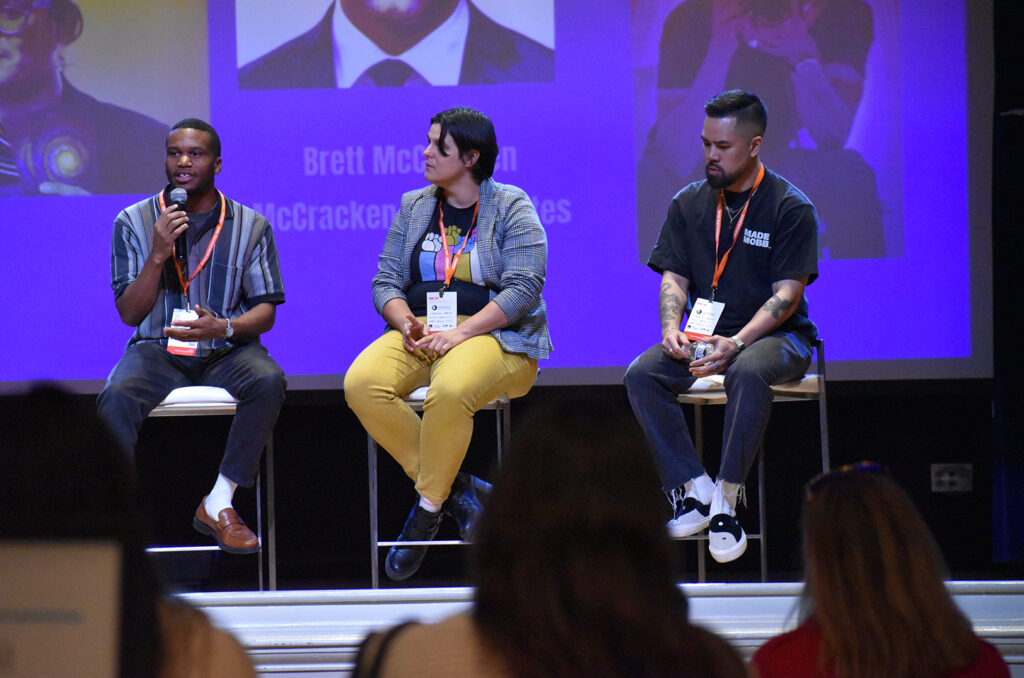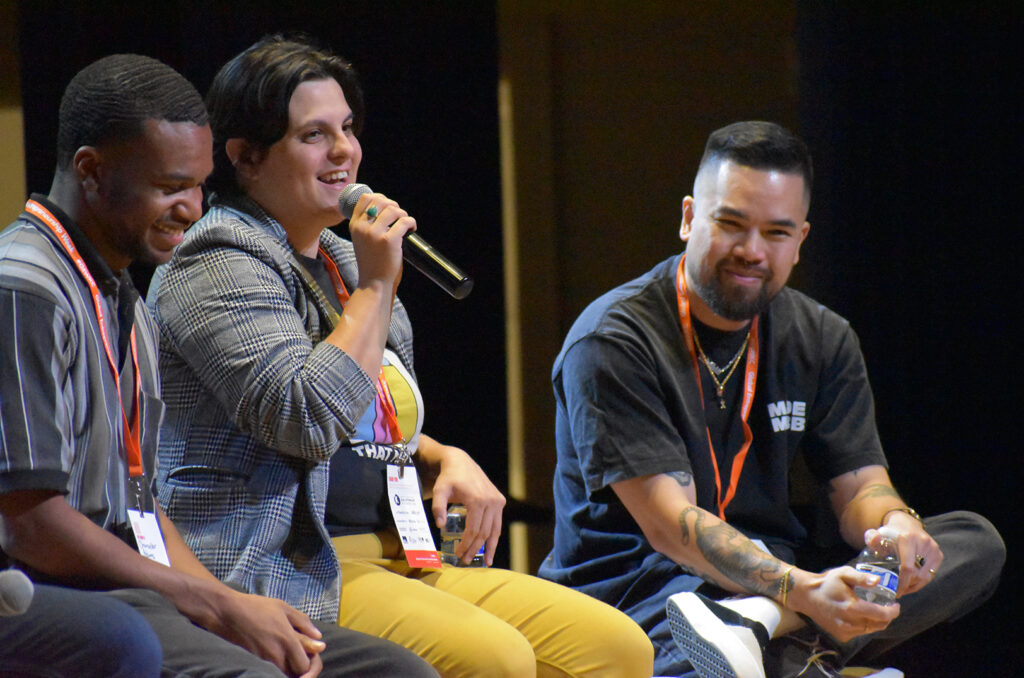Editor’s note: Startland News’ coverage of Global Entrepreneurship Week-Kansas City is made possible by the support of Husch Blackwell.
Celebrating the victories is easy, said Vu Radley, calling out a decade in business for his streetwear company, MADE MOBB, along with high profile partnerships ranging from UMKC and United Way to the Kansas Chiefs and KC Current.
But acknowledging the darker side of entrepreneurship is equally important for surviving the grind, added Radley, co-founder, CEO and creative director for MADE MOBB.
“There’s a lot of things in the background that are tough,” he said, mentioning creative blocks, four years of not turning a profit, failed business relationships, and the mental health toll taken along the journey.
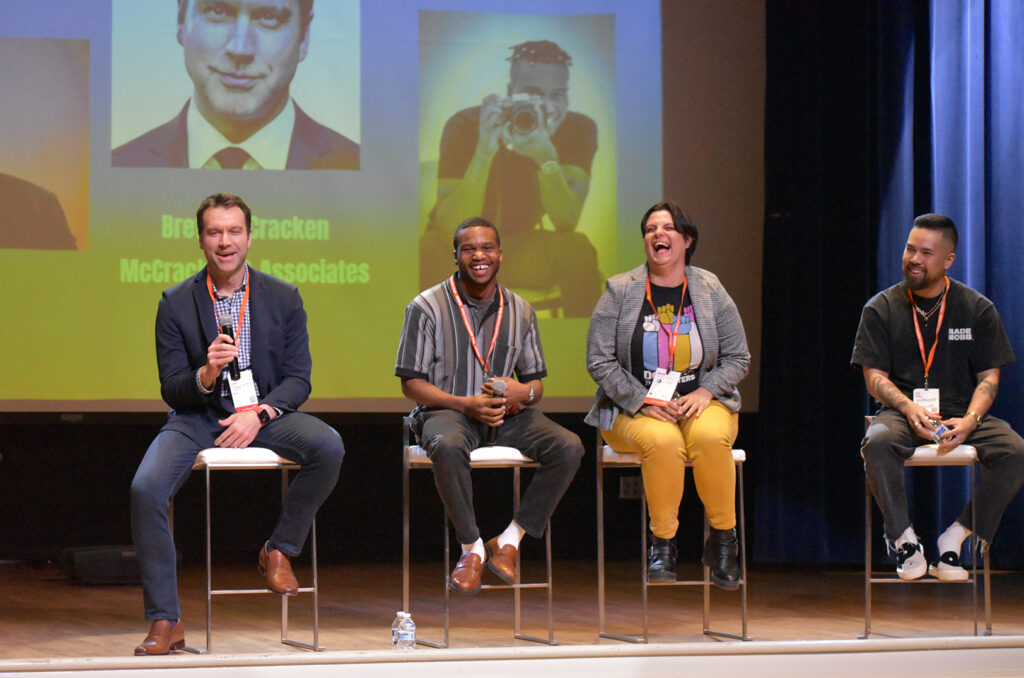
Brett McCracken, McCracken and Associates, speaks at Global Entrepreneurship Week-Kansas City, alongside fellow panelists, Chancellor Adams, Chancellor’s Promise; Max Sheffield-Baird, Max Wilde Stories; and Vu Radley, MADE MOBB; photo by Taylor Wilmore, Startland News
Radley was joined Wednesday at Plexpod Westport at Park 39 by fellow panelists Chancellor Adams, photographer and founder of Chancellor’s Promise; Brett McCracken, founder of McCracken and Associates; and Max Sheffield-Baird, founder of Max Wilde Stories for a Global Entrepreneurship Week-Kansas City session on lessons from starting a business.
The panel was organized by Junior Achievement of Greater Kansas City, Startup Grind, and Startland Education, a sister program of Startland News.
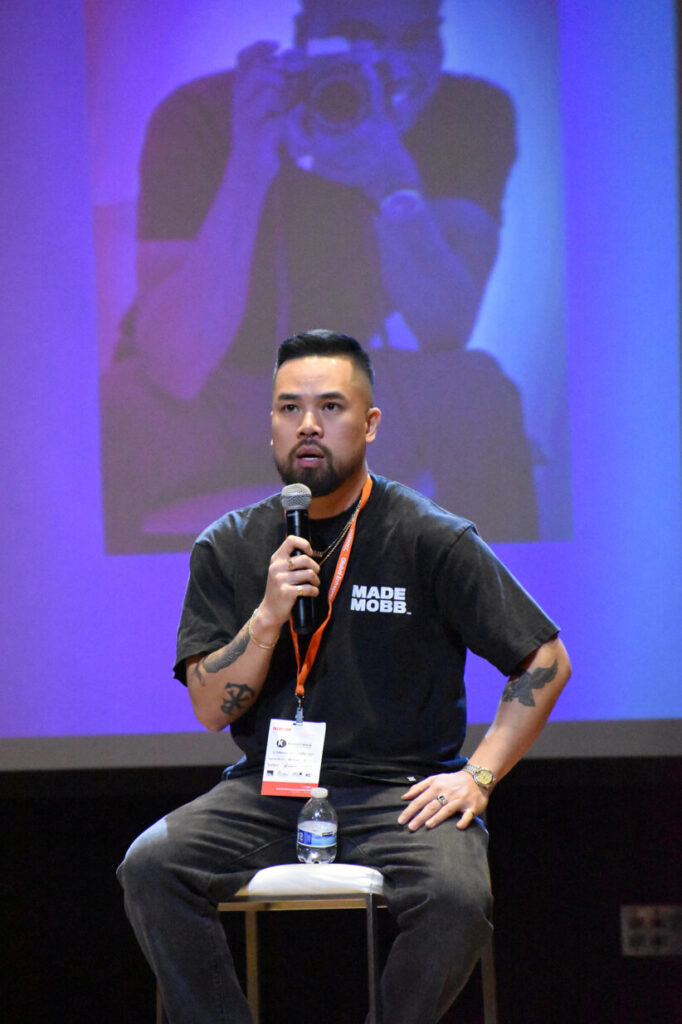
Vu Radley, Made Mobb, speaking during a 2023 Global Entrepreneurship Week-Kansas City panel; photo by Tommy Felts, Startland News
Pursuing your passion full-time requires a change in mindset, Radley noted to the crowd gathered Wednesday in Plexpod’s Medallion Theater.
“With a corporate job, you have insurance, you have set hours, you know what to expect in and day out,” he said, explaining his path from a stable job to a more risky startup environment. “Now with entrepreneurship, it’s definitely more flexible — I can create my own space in it — but it’s never really something you could turn off. It’s always on.”
“And there were times along the way where I was like, ‘I don’t know how to pay myself next week,” he added.
At MADE MOBB — one of Startland News’ 2023 Startups to Watch — the pandemic was an especially tough time for Radley and co-owners Jesse Phouanphet and Mark Launiu, he shared; in addition to the ripple effect of COVID-19, they also dealt with a falling out and the departure of a business partner who was among the brand’s co-founders.
“At that time, I thought we were going to lose the business,” Radley explained. “This was during COVID, so money was strapped. … We were really scared MADE MOBB was gone, so I was looking at other plans.”
But Radley didn’t give up, and he encouraged other entrepreneurs to push themselves with that same sense of resiliency.
“For some reason, I was just like, ‘Alright, I’m gonna ride this shit ’til the wheels fall and just see what happens. And I’m glad we did, because in the end, we’ll have our biggest year this year,” he added. “Keep going, keep going until it’s done.”
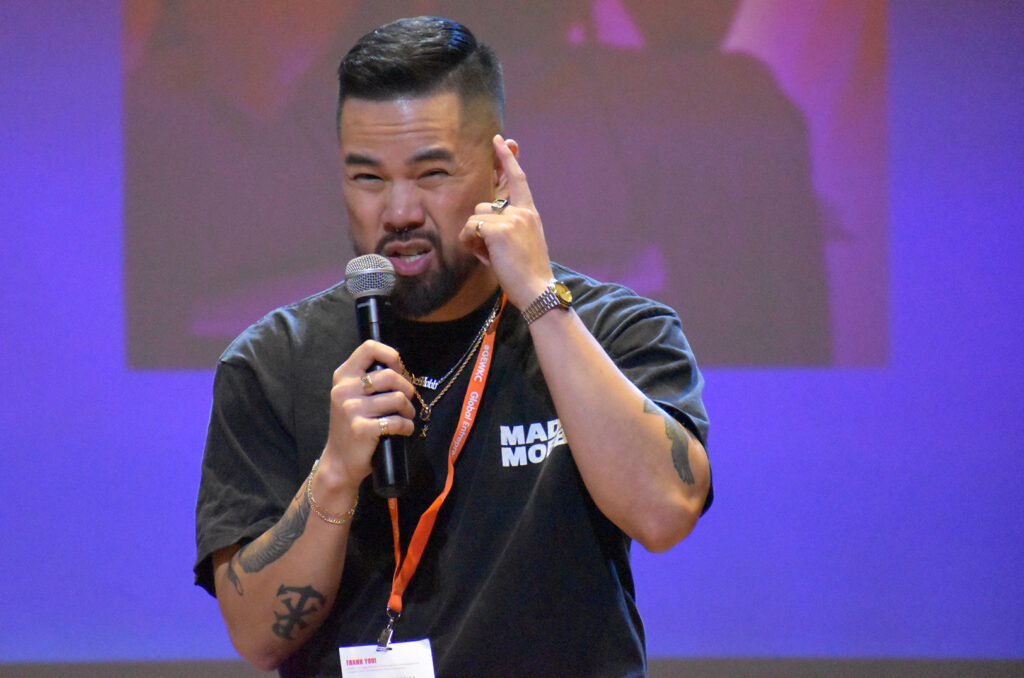
Vu Radley, MADE MOBB, speaking during a 2023 Global Entrepreneurship Week-Kansas City panel; photo by Tommy Felts, Startland News
Radley wishes he had more “book knowledge” on running a business when MADE MOBB initially launched, he acknowledged.
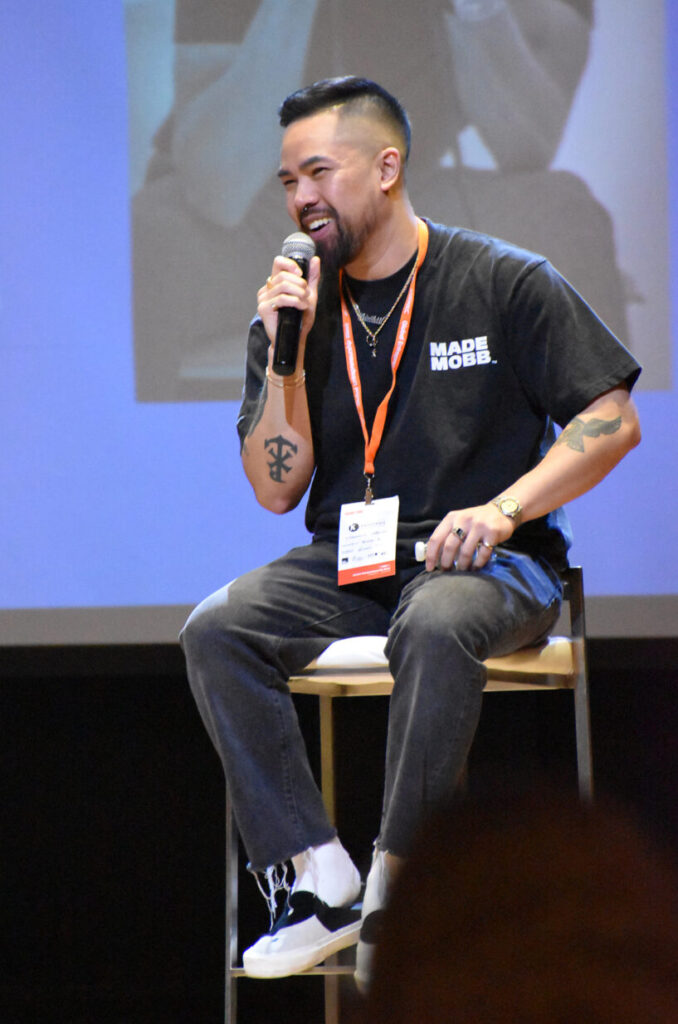
Vu Radley, MADE MOBB, speaking during a 2023 Global Entrepreneurship Week-Kansas City panel; photo by Tommy Felts, Startland News
“Whenever we started the business 10 years ago, we were idiots,” Radley said. “It started with a spit handshake and like, a ‘Yeah, alright, let’s do this.’ And then all the details came after — like the license and learning about taxes and business operating agreements.”
“There are so many things that, if I took business courses first, I would have known to have a business operating agreement for when business partners split; what to do and how that works. I think we had the grit, the grind, the passion, but we just didn’t have the book knowledge.”
Radley and his co-founders have also learned to prioritize their mental health, he shared.
“We talk about it a lot with MADE MOBB,” he said. “There’s a bunch of guys there. We grew up in very toxic masculinity spaces where you can’t show emotion. And so for us, our table’s always open. We have our conference table right on the floor and we do mental checks every day.”
Putting his mental health first — something he hasn’t always done well, he admitted — has helped Radley become a better entrepreneur, he said.
“I worked myself physically to the point where I didn’t think about my health or my family or the people around me; and I think that that pushed me to rock bottom,” Radley added. “To build myself up from there, I’m learning to give myself more confidence — to love myself — to do better.”




